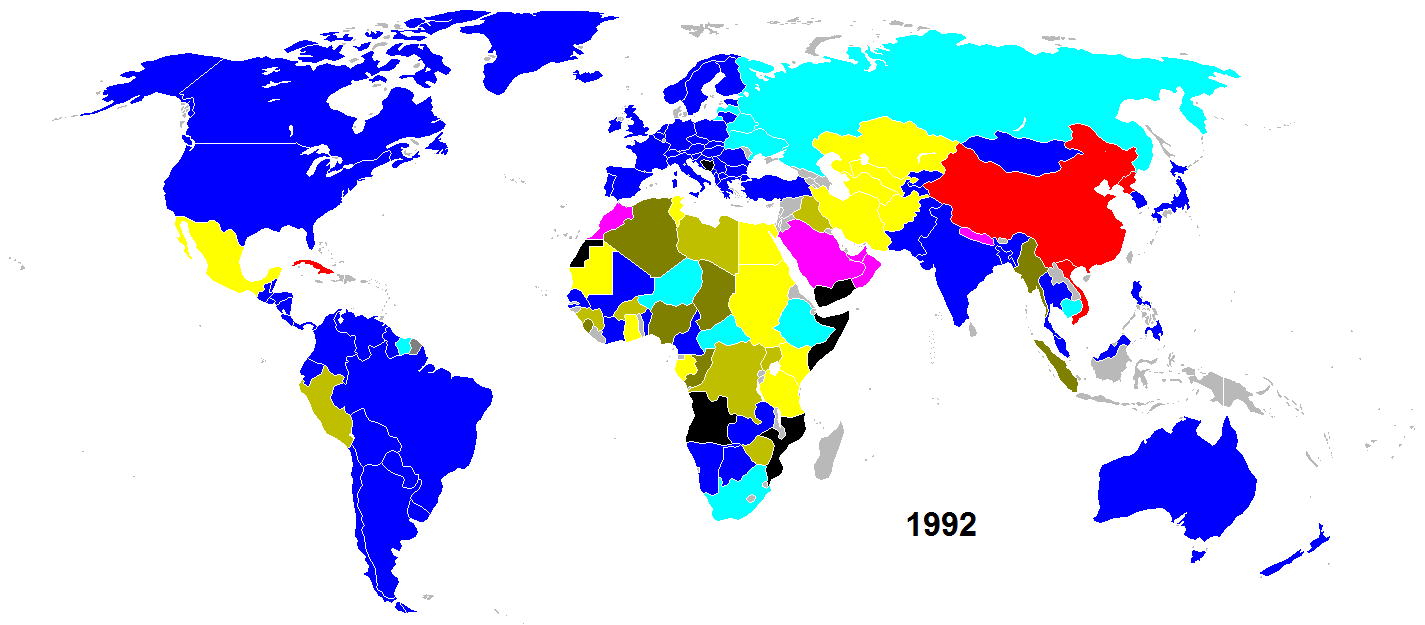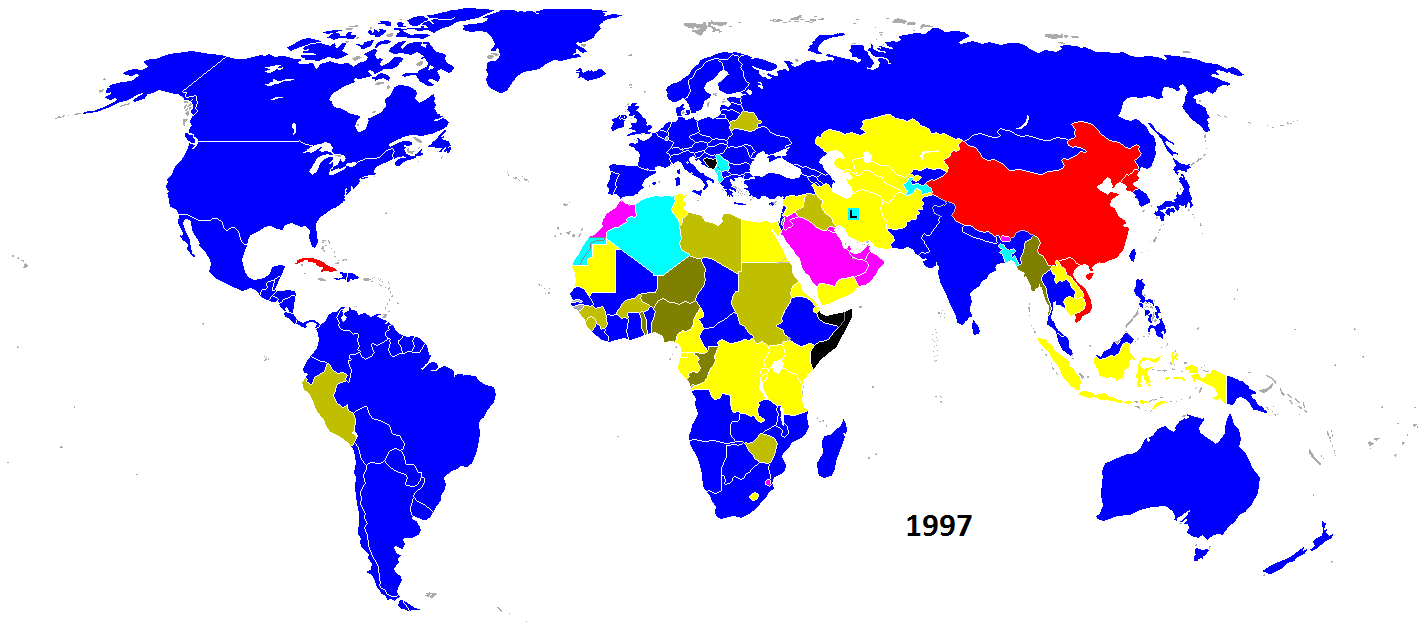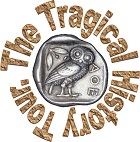
The 1990s


 The
crisis and collapse of the Soviet Union brought forth two great
surges of democracy, the first in the fall of 1989 when the
Communists surrendered their monopoly of power in the satellite
nations, and the second in the summer of 1991 when the
constituent republics of the Soviet Union seceded. There was
also a parallel surge of nationhood as four former Communist
unions -- the USSR, Czechoslovakia, Ethiopia and Yugoslavia --
shattered into 24 ethnic nations. [n.1]
The
crisis and collapse of the Soviet Union brought forth two great
surges of democracy, the first in the fall of 1989 when the
Communists surrendered their monopoly of power in the satellite
nations, and the second in the summer of 1991 when the
constituent republics of the Soviet Union seceded. There was
also a parallel surge of nationhood as four former Communist
unions -- the USSR, Czechoslovakia, Ethiopia and Yugoslavia --
shattered into 24 ethnic nations. [n.1]
All across the globe, the various petty tyrants who had stayed
in power by playing one side against the other in the Cold War
were swept away. The pro-Soviet among them were cast adrift,
friendless and alone, while the pro-Western soon realized that
their former sponsors didn't need anti-Communist thugs anymore.
Throughout the Third World, strongmen agreed to relinquish their
power. They released opposition leaders from jail, scheduled
elections and pilfered national treasuries to set up retirement
accounts in off-shore banks.
The end result was a world that has changed unrecognizeably from
the world twenty years earlier. In the early 1970s, democracies
were scattered in a few small clusters on the edges of the great
land masses. By the late 1990s, four continents (Europe,
Australia and the Americas) were almost entirely democratic.
Africa had gone from almost entirely oppressive to only about
half, and even if some of the new "democracies" didn't quite
have the hang of it and occassionally continued to harass the
opposition, reward cronies and fudge the ballot counts, at least
the jails were emptied of dissidents and the press was allowed
to complain more vocally about government abuses.
There is no single effect that the end of the Cold War had on
hot war worldwide. In Africa, several long smoldering civil wars
fizzled out as Soviet-sponsored governments and
Western-sponsored guerrillas decided it was time to talk. But
this trend toward peace in one part of the world was balanced by
new conflicts elsewhere. In the former Communist lands of
Eurasia, ethnic hatreds which had been kept under control by
Russian hegemony now found an opportunity to flare up.
NOTES:
[n.1]
New countries from Communist unions: Armenia, Azerbaijan,
Belarus, Bosnia, Croatia, Czech Rep., Eritrea, Estonia, Georgia,
Kazakhstan, Kirghizstan, Latvia, Lithuania, Macedonia, Moldova,
Russia, Slovakia, Slovenia, Tajikstan, Turkmenistan, Ukraine,
Uzbekistan.
... plus Namibia was fully freed by South Africa.
[back]
![[Previous Chapter]](images/previous_arrow.gif) |
![[Next Chapter]](images/next_arrow.gif) |
